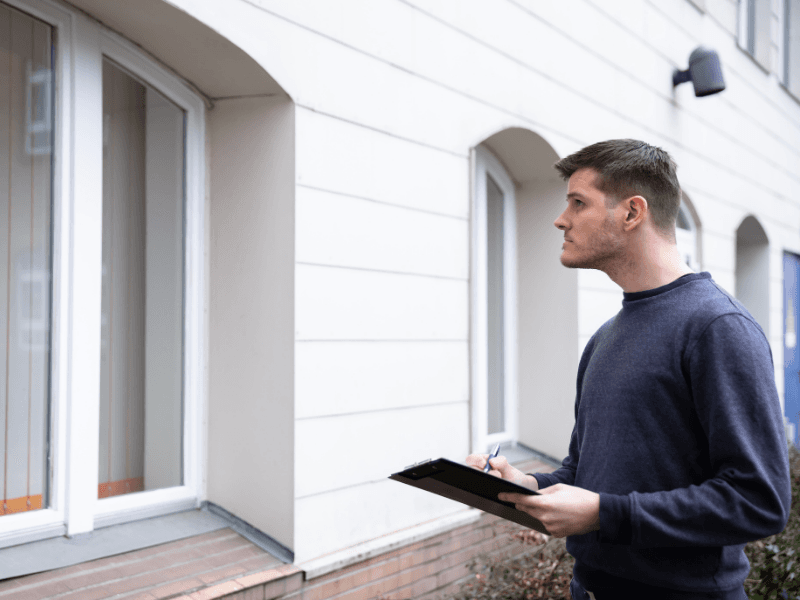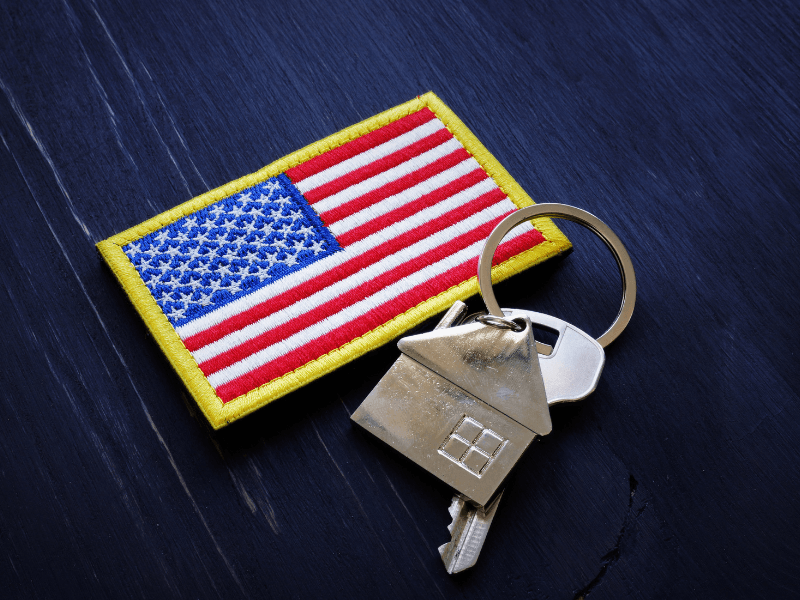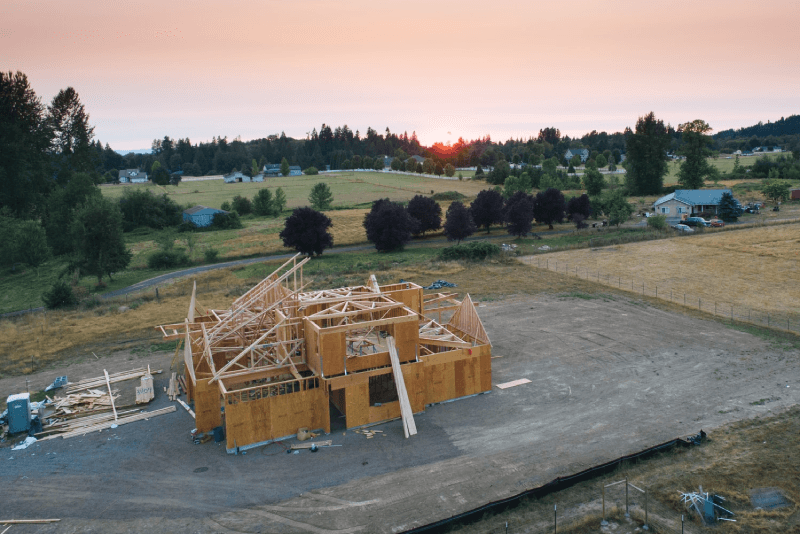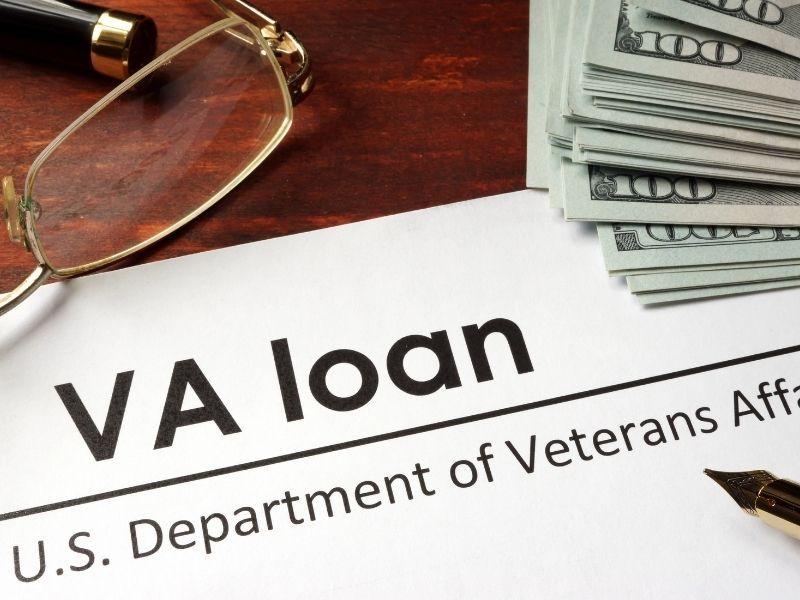
Everything You Need to Know About VA Appraisal Requirements
VA appraisal requirements are an integral part of the VA loan process. Learn more about what your appraiser is looking for.
When applying for any type of mortgage loan to purchase a home, the lender usually requires an appraisal to estimate the home's value. The same goes for a VA loan, except the lender will hire a VA-approved appraiser. This appraisal does have its own set of requirements, which we will discuss below.
What is a VA Appraisal?
A VA appraisal is a mandatory requirement when applying for a VA home loan. You, the buyer, will be required to pay for this appraisal as part of the closing costs. The VA limits how much appraisers can charge, which can vary by location.
The VA appraisal has two primary purposes:
- To determine if the home is fairly priced. The VA will need to know if the property is equal to the market value, and if it’s higher, the VA can withhold funding for your loan.
- To determine if the home meets the VA’s Minimum Property Requirements (MPRs). MPRs is a compiled list of unique standards the property you’re interested in must meet. These guidelines ensure that the house you’re purchasing is safe and ready to be lived in.
If the requirements are not met, the VA reserves the right to deny your loan application.
So what is on this MPRs list?
Minimum Property Requirements:
This list may seem like a very long list to work through, but it’s in the best interests of both you, the borrower, and the lenders (banks and the VA).
Is it residential?
The property you’re applying for needs to be used primarily as a residential home. The VA will allow the purchase of a partially “used for business property,” as long as the majority of it is used for residential purposes.
It will also need to be in a residentially zoned area. It can be classified as a single-family, modular, or mobile home.
Electricity
The next requirement is that the property must have working electricity. This is also defined as a safe and working electrical system. There should be enough power to run necessary appliances as well as lighting.
If you or the owner know there is an electrical supply issue, you will need to discuss how to address it with the property’s seller before the appraiser visits.
No Exposed Wiring
The VA will not grant the home loan if there is exposed wiring, or any other unsafe electrical system features, such as poorly installed solar panels. Any visibly damaged or exposed electrical wires must be repaired.
The home needs to abide by the local building codes. The VA appraiser is required to run tests and reset buttons on all GFCI outlets. If these do not meet standards, they will need to be replaced.
Heating and cooling systems
The VA appraiser will ensure the heating and cooling systems are working properly throughout the home.
It’s essential to determine that the temperature systems can maintain 50 degrees in plumbed areas. The cooling system must also be deemed to be in a working condition and not unsafe or unsanitary.
Roofing
The roof is arguably the most crucial aspect of the home, especially for the VA appraiser. A bad roof can lead to large bills in the future.
Ensure that the roof has no current leaks or problems and that there are at least a few more years of use out of it. The VA will also want to ensure that there aren’t too many layers of old shingles on the roof. If there are three or more layers, the seller will be required to remove and replace them.
Pests
If there is any evidence of termites or any other pests causing damage, the appraiser will note it down. This damage can also relate to rot and fungus. Some VA appraisals will need an additional inspection if there is evidence of pest damage.
Water and Sanitation
The VA appraiser will ensure there is a safe water supply, hot water, sanitary facilities, and safe sewage disposal. The water tapped into the property must be safe to drink, have hot water, and a continuous water supply to toilets, sinks, baths, and showers.
Ensure that the bathrooms are sanitary. This means sewage needs to be disposed of safely. An appraiser will check if the water and sewage systems are correctly connected.
Mold
If there is visible mold on any surfaces of the home, consider this a significant issue for the appraiser. A sign of mold is a strong indication of a leak from the roof or water pipes. Mold can rot wood and also be a health hazard for residents.
Drainage
As you’d expect, there needs to be adequate drainage around the property. This means gutters, downspouts, drain pipes, and any other feature that removes water from the home.
If there is pooling water around the home, this could result in water damage and a denied application. Water must drain away from the house.
Accessibility to the property
The VA appraiser will not approve your VA loan if access to the property is limited at any time of the year.
VA guidelines state that your property must be safe to access for people and vehicles. If your dream home is situated on a dirt road, this might be an issue. And if your property does have a backyard and it is blocked, this will be deemed an accessibility problem.
Lead-based paint
We can assure you that you do not want to live in a home with lead-based paint. It is a severe health risk.
On homes built before 1978, any loose, cracked, or peeling paint inside or outside must be repaired due to the possibility of lead contamination. However, if it is determined that the lead paint level is lower than the law-permitted level, it can stay.
Enough space
What is deemed as sufficient living space is up for interpretation. There are no minimum area requirements for a home. There must be enough space for living, sleeping, cooking and dining, and adequate bathrooms.
Accessing attics and crawl spaces
This isn’t the main point of inspection for the appraiser, but it will be an issue if there is no access to an attic or crawl space. Before calling in the appraiser, make sure you can easily access these spaces.
After the inspection
Buying a home is all about timing, so we know you’ll be eager to learn the appraisal results.
You can check the status of this report by contacting your lender. They will receive a copy of the report from the appraiser electronically. Appraisers have anywhere from five to 21 business days to complete the report, depending on the property location. Exceptions can be made for extenuating circumstances.
Then, what you’ll get is a notice of value (NOV). A NOV will include the final appraised value of the home. If there are any issues, they will be listed in the Minimum Property Requirements, along with the appraiser’s decision of whether the property has passed or failed the inspection.
You cannot dispute a VA appraisal, but you can request a new one in the form of an appeal or a Reconsideration of Value. During this process, all parties have transparent access to information. But there’s no guarantee the outcome will change.
In the case of complications, such as marking down the property’s value due to outstanding repairs, you will be required to address the seller to fix these issues. But as a rule of thumb, anything that doesn’t meet the MPRs will need to be fixed.
As the buyer, you are not obligated to provide the appraisal results to the seller, even if they request them. It may be in your best interest to share the information, as it can be a great bargaining tool to lower the asking price and negotiate repairs of the home.
This appraisal is valid for six months from the date of the inspection. If it expires, you will need to request another appraisal. If this appraisal is successful, you will be eligible for a VA loan and on your way to moving into the home of your dreams!
It is important to note that a VA appraisal is not a home inspection. An inspection is a detailed assessment of a home's condition. It's a good idea to get a home inspection after a seller has accepted your offer, but before the purchase is complete.
A final word on VA Appraisal Requirements
Buying a home can be stressful for many, but determining the steps you need to take before beginning your journey can ensure you will fulfill the requirements needed to make the purchase successful. If you are interested in learning more about obtaining a VA loan and what your costs and savings could potentially be, check out the VA loan calculator for an accurate estimate.










